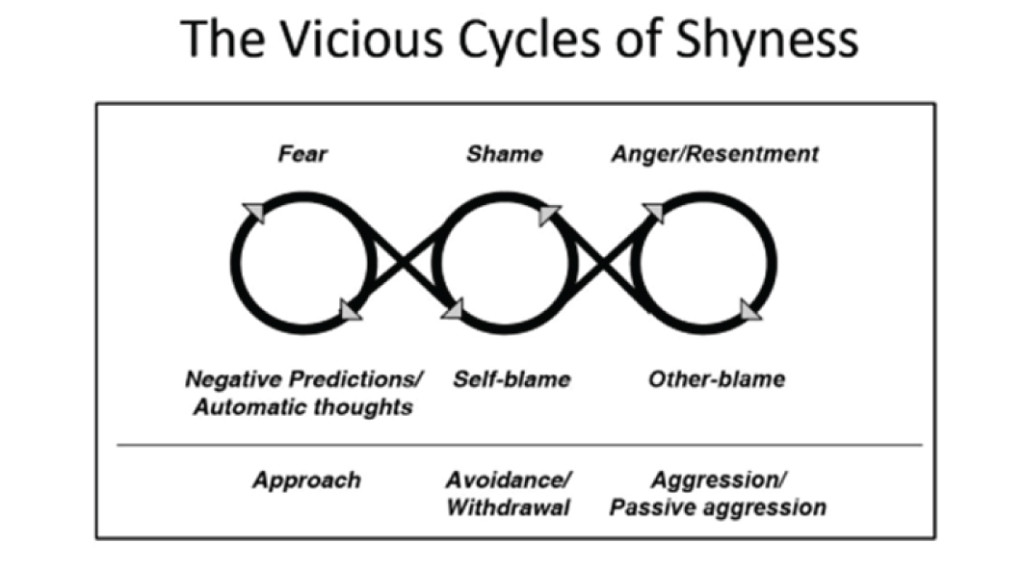manage your shyness & learn social skills
Would you like your child to overcome his or her intense shyness and become more comfortable in group and social settings? Would you like to help your child learn social skills and be able to make friends?
We have adopted Lynne Henderson’s (2014) Social Fitness model on effectively helping children to overcome their shyness and anxiety. Henderson explains the vicious cycle of shyness as:
Vicious cycle 1: Fight ? Flight ? Freeze ?
Experiencing fear or negative predictions or automatic thoughts.
Vicious cycle 2: Shame, Self-Blame
Which leads to avoidance or withdrawal.
Vicious cycle 3: Anger, Resentment
Showing aggression or passive aggression.
The Social Fitness Group Program (Henderson, 2014) is aimed to provide teenagers an opportunity to cultivate a greater sense of self-esteem, help work through challenging social situations, develop confidence and enhance their social skills.
Being fearful or anxious in some social situations is normal. However, when the fear or anxiety becomes intense, noticeable and disabling in one or more social situations you may be experiencing social anxiety. According to the current version of the Diagnostic and Statistical Manual of Mental Disorders (5th ed.,; DSM-V; American Psychiatric Association, 2000), other symptoms of social anxiety may be characterised by feeling exposed to possible scrutiny by people, or becoming worried that you may act in a way that may be embarrassing or humiliating and will be rejected by people around you. This fear or anxiety can be persistent and may at times stop you from leading a normal life.
In children and teenagers, the anxiety may occur when they are interacting with their peers, adults (5th ed.; DSM-5) and even with family members. This fear and anxiety may be expressed by crying, tantrums, freezing, clinging, shrinking or failing to speak in social situations (5th ed.; DSM-5).
We use a range of intervention tools such as mindfulness cognitive behaviour therapy and acceptance commitment therapy in our sessions. We use strategies from these therapies in a fun and interactive manner where teenagers can easily incorporate them in their daily lives.
Features of the Social Fitness Group Program include helping your child to …
- Recognise their automatic thoughts, fear and negative predictions,
- Recognise their behaviours when engulfed by social anxiety,
- Help them learn strategies for overcoming shyness and social anxiety &
- Learn effective social skills.
The main benefit of the Social Fitness Group Program includes …
- A happier teenager.
Schedule
The next Social Fitness Group Program is due to start in February 2018 in Berwick. Please contact us for further details.
Counsellor
Asha Padisetti
Speech Pathologist
Lien Ta


